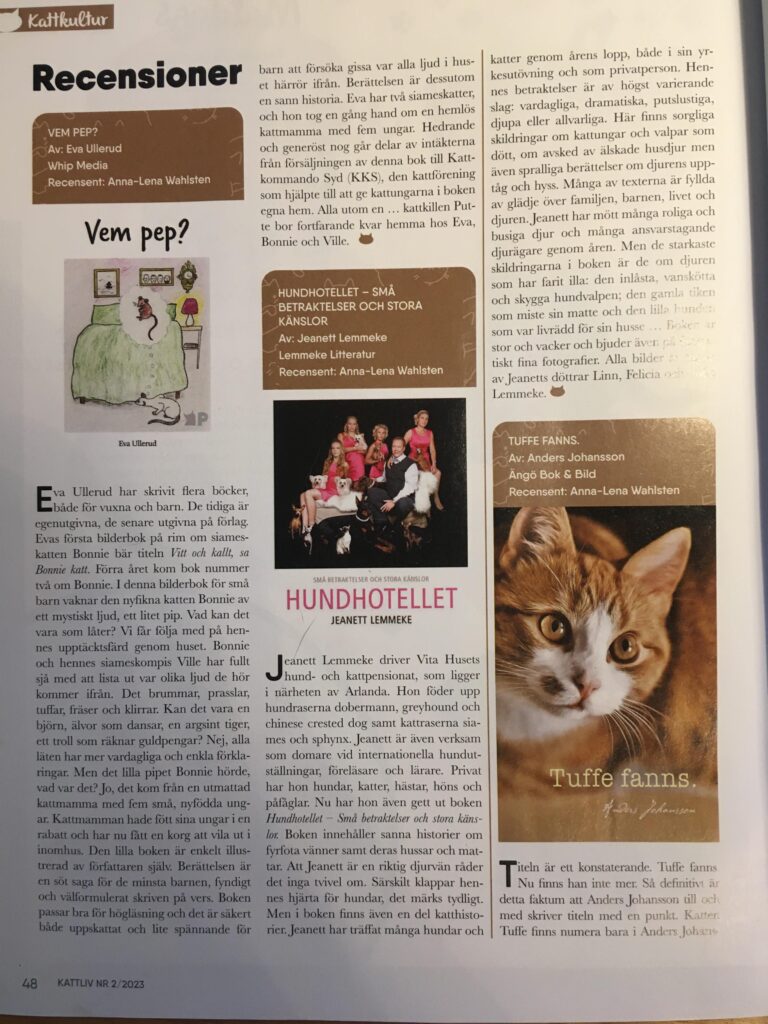Fick ett tips från Ahrvid om en skrivartävling på engelska – After the war:
OBS: anmälan görs på deras hemsida.
‘After the War’ – Post-Conflict Issues From Future Wars
The Atlantic Council’s Art of Future Warfare project, in partnership with veterans writing group Words After War, seeks unpublished short stories exploring post-conflict issues from a future war in the 2040s for its latest creative challenge. The stories should use the creative cues provided below for inspiration and direction.
The winning story will be prominently featured on the project’s website and at partner War On The Rocks. Its author will receive a $500 honorarium.
Journalist, Marine and author of the novel Green on Blue, Elliot Ackerman, will help select the contest winner.
The winning story and finalists will be announced at the November 12 Art of Future Warfare project and Words After War “After the War” event at the Atlantic Council in Washington. The event will feature Elliot Ackerman, Gayle Tzemach Lemmon and other writers whose work explores life during and after wartime.
‘AFTER THE WAR’ CONTEXT
The Art of Future Warfare project has so far used short stories to explore how wars start, how they might be fought in space and what a conflict among the great powers could look like. But what comes next when the fighting ceases? For combatants and warzone civilians alike, conflict during the next decades will have elements that would be familiar to Greek hoplites, like the essence of tactical deception or being proficient in close-quarters combat. Yet there will be elements that from today’s perspective will stretch the boundaries of official imagination in preparing for how closer man-machine interface, latent cyber weapons and bio-enhancement to soldiers and weaponry alike will change war.
The stakes are high. On one hand, being able to better see into the future means being prepared for military operations but also for the healing and reconciliation that hopefully follows. Consider the way a conflict’s unexpected weapons like primitive roadside bombs can vex the care for the forces in the world’s best resourced military. According to the Veterans Administration, 22% of combat casualties from Operation Iraqi Freedom and Enduring Freedom are traumatic brain injuries, which have gone undiagnosed and untreated for too long. The military’s difficulty in confronting post-traumatic stress disorder, even among operators of remotely flown weapons thousands of miles from a warzone, is another example of a bureaucracy surprised by the pace of change of warfare and its unexpected impact.
Civilians can experience the same traumas as combatants and often much worse. The over 4 million registered refugees from Syria remind us that a brutal internal conflict, which some day will indeed end, has caused suffering and strife that will last, in some cases, generations.
Fiction remains one of the best ways to explore this from a human point of view – the essential perspective in thinking about future war. One of the best and most recent examples is William Gibson’s 2015 novel The Peripheral, which opens with a description of a future Marine’s post-conflict ailments tied to his service in an elite recon unit. From a writer who ably captured the technological and human essence of the Internet well before it became ubiquitous, this is a notable foreshadowing. As well, the Philip K. Dick story The Man in the High Tower has been turned into a television series by Amazon, revealing a fictionalized U.S. home front after defeat during World War Two that reminds us no nation is invincible no matter how powerful it may seem today.
CONTEST GUIDELINES
- Entries should be between 2,000 to 4,000 words long and must be submitted by November 2, 2015.
- The creative cues below are meant to inspire, not contain, the authors.
- A panel of judges from the Atlantic Council and Words After War will select a pool of finalists from which writer Elliot Ackerman will help choose the winner. The winner will be announced on November 12, 2015.
- Entries must be the author’s own original work.
- Authors may publish under a pseudonym, but a CV or bio is required.
CREATIVE CUES
- “They didn’t think Flynne’s brother had PTSD, but that sometimes the haptics glitched him. They said it was like a phantom limb, ghosts of the tattoos he’d worn in the war, put there to tell him when to run, when to be still, when to do the bad-ass dance, which direction and what range. So they allowed him some disability for that, and he lived in the trailer down by the creek.”
– William Gibson, The Peripheral , 2015.
http://www.williamgibsonbooks.com/books/the_peripheral_excerpt.asp - “How PTSD Became A Problem Far Beyond The Battlefield,” Vanity Fair , Sebastian Junger.
http://www.vanityfair.com/news/2015/05/ptsd-war-home-sebastian-junger - “Blam,” Roy Lichtenstein, 1962.
http://artgallery.yale.edu/collections/objects/60638
- Dedication of the Vietnam War Memorial: video
http://www.c-span.org/video/?88364-1/dedication-vietnam-war-memorial















